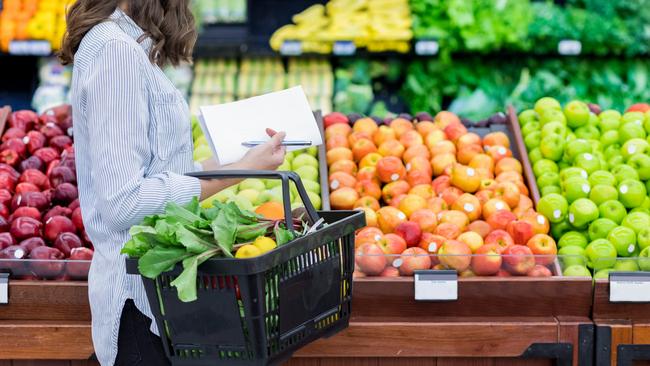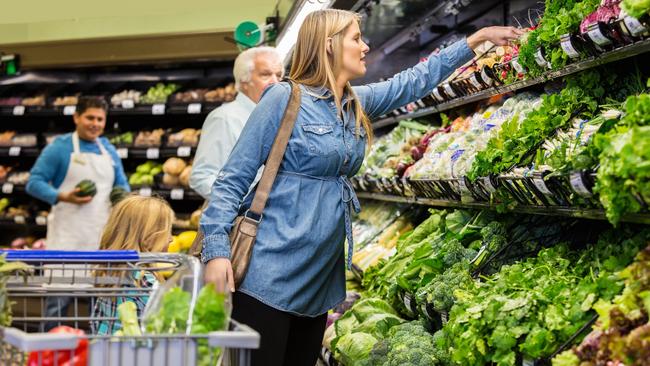Jeff Kennett: Why it is unlikely change will come from supermarket inquiry
An inquiry is being conducted into the farmgate price farmers receive for produce and the price supermarkets then charge consumers. But don’t hold your breath it will bring change.
Opinion
Don't miss out on the headlines from Opinion. Followed categories will be added to My News.
The elevation of Princess Mary to becoming the Queen of Denmark, the Australian Open and finally the arrival of summer weather has allowed us to be swamped with good news and feel-good stories.
Sadly, the spreading of the conflict in the Middle East is extraordinarily worrying.
While we only have a small engagement there and more so in Ukraine, we are involved.
Let’s hope our leaders here and internationally can find a path to the halting of hostilities before those conflicts become measurably worse.
Here in Australia the federal government has responded to the pleas of many farmers to investigate why the price the farmers get on selling their products is so much less than the price the products are offered for sale by the supermarkets.
I quite understand the extraordinary efforts our farmers go to in producing the vegetables and meats that we end up buying. Theirs is a tough life, determined by hard work, long hours, climatic changes and supply and demand both here and internationally.
The government has appointed former federal Labor Minister Craig Emerson to conduct an inquiry into the farmgate price our farmers get, and the price supermarkets and retailers charge us for the same product.

Emerson is an economist and I have no doubt he will do a good and thorough investigation.
But my warning is do not hold your breath in expectation of a surprising outcome to his inquiry.
For the last nine years I have been the first Independent Arbiter appointed by Coles to handle any disputes between the supermarket and its suppliers that are not settled between the two parties. I retire from the role in February.
My experiences were used when the Grocery Code was established as a result of an Inquiry done by former ACCC boss Graeme Samuel.
Let me share some of my experiences.
First, costs have risen dramatically over the last five years for farmers, supermarkets, and in fact all of us. That includes ingredients farmers use to produce their wares, as well as the cost of labour, energy, transport, and government fees such as payroll tax and workers compensation.
Coles which is the second largest supermarket chain in the country after Woolworths, employs about 140,000 Australians in all operations.
Yet even after sales for the financial year 2022/23 of $41.47bn, Coles only made a profit of 2.6 per cent or $1.1bn.
That is a dismal return for any organisation. In fact, you and I can get about 5 per cent if we put our money into a term deposit with a bank, hassle free.
While supermarkets will have differing profit margins on various items they sell, bear in mind, supermarkets provide the staples for most families, such as, bread, milk, cereals, fruit and vegetables and toilet paper. Demand is so great, the competition between resellers, supermarkets and shops is very competitive and price sensitive.
I support Emerson conducting his inquiry, because it might highlight the real costs along the production line from farmer to customer.

Following a range of products maybe 24 in number, itemising all costs and margins from farmer to sale price in the supermarket will be fairly easy understanding that there will be sale price differences between the supermarkets.
But then Emerson will have to distribute the costs of, in Coles’ case, employing 140,000 people and all other aspects of running a huge organisation.
In short, the total revenue of a supermarket less all costs. In the main, this can be derived from the supermarkets’ annual financial report. But those figures might require deeper examination.
Emerson’s task will not be easy because the major supermarkets each deal with between 4000 and 5000 suppliers. And all products sold by a supermarket minus costs determine whether they are profitable or not.
A 2.6 per cent profit is a very fine margin.
Supermarkets cannot exist without a good relationship with their farmers and suppliers, and in most cases that relationship exists. I know all supermarkets devote considerable resources to working with their suppliers, particularly during Covid and since with applications for price rises from suppliers.
If Emerson does find a product that sells at a higher margin than others, what does he do? Or government for that matter?
Instruct a supermarket to lower the profit margin which might force up the cost to consumers of other products for a supermarket to remain profitable?
Governments are not good at managing their own expenditure, especially here in Victoria, and to have them potentially setting retail prices within supermarkets is fraught with danger.
Eat, drink and be merry!
Jeff Kennett is a former Premier of Victoria



